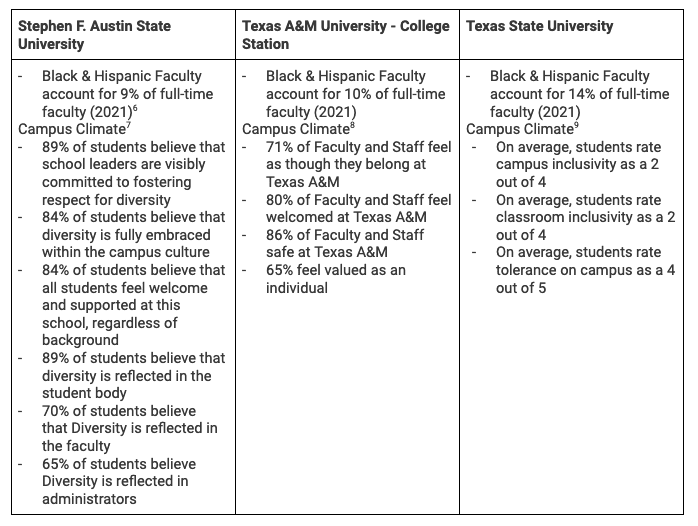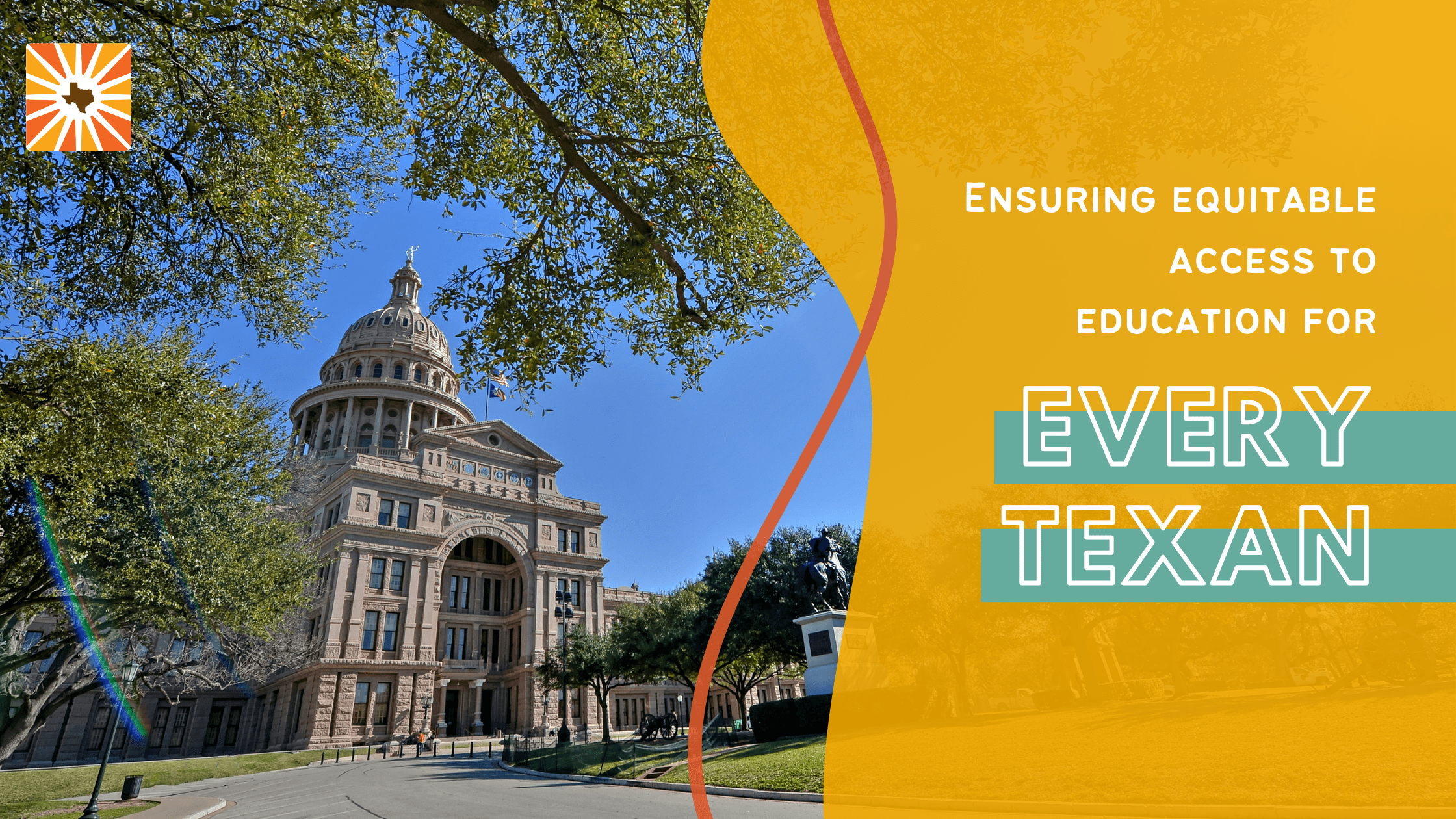View this testimony as a PDF here.
Every Texan is an independent public policy organization that uses data and analysis to advocate for solutions that enable Texans of all backgrounds to reach their full potential.
We oppose Senate Bill 17 because it is a significant step backward for our higher education institutions. Students, faculty, and staff should feel socially and emotionally safe and have the resources and support they need to thrive academically and professionally. DEI initiatives attempt to remedy centuries of discrimination in higher education while boosting access and success for all students, faculty, and staff. DEI efforts are a commitment to recruiting and supporting students and faculty that have been systematically denied access to college degrees and academic careers.
If SB 17 is passed, it will:
- Restrict the way resources for students from underrepresented backgrounds like women, people of color, veterans, people with disabilities, first-generation college students, low-income families, religious minorities, students from rural backgrounds, and many others.
- Negatively impact graduation rates among our most valuable populations.
- Restrict the intentional efforts to promote fair hiring practices and ensure that applicants and employees are treated fairly.
- Restrict the hiring of diverse faculty and staff.
- Prohibit research institutions from being applicable for federal research grants.
- Restrict universities from ensuring that their faculty are equipped with the knowledge and resources to teach a diverse student body.
- Negatively impact job security for DEI employees.
- Decrease the recruitment and enrollment of underserved student populations.
It can be argued that with the presence of DEI initiatives, little has changed on college campuses. While colleges and universities have much more work to do to make their campuses more inclusive, increase the enrollment and graduation rates of students from underserved populations, and increase diversity among faculty and staff, we cannot dismiss the work of DEI offices. Instead, the solution to making additional changes and progress is strengthening and supporting DEI efforts.
If passed, SB 17 will negatively impact or eliminate:
- Stephen F. Austin University’s
- Axe Hate Education and Response Team which offers “assistance and guidance to those who have been affected due to hate/bias, supports campus initiatives that expand diversity and inclusion on campus, and plans campus education initiatives based on trends in reporting.”
- Active stance on diversity and inclusion. The universities currently state that they “believe diversity and inclusion are keys to promoting more engaged individuals locally and globally. We at SFA are committed to amplifying a campus culture that nurtures belonging and embraces similarities while celebrating that every Lumberjack will be different. Those differences are valued, acknowledged, and supported purposefully.”
- Texas A&M University’s
- Accountability, Climate, Equity, and Scholarship (ACES) Faculty Fellows Program – “a faculty hiring program that connects early career faculty advancing outstanding scholarship with relevant disciplinary units on campus. Faculty are hired as ACES Assistant Professors with the expectation of transitioning to tenure track (pending departmental review) by the end of the fellowship period. ACES is administered by the Office for Diversity in partnership with the following colleges and schools: College of Agriculture and Life Sciences; Arts & Sciences; Architecture; Education & Human Development; Medicine; Public Health”
- Enhancing Diversity Seminars which are designed to “engage the campus community in dialogue around topics and issues related to diversity, campus climate, equity, and inclusion.”
- A series of other training and professional developments offered by the Office of Diversity.
- Texas State University’s
- Division of Inclusive Excellence at Texas State which “supports community engagement across the University and aims to ensure all Bobcats experience a sense of belonging. The Division promotes the University’s mission and values, calling us to embrace the diversity of the people who make up our community and to create a learning community that embraces a diversity of people and ideas, a spirit of inclusiveness, a global perspective, and a sense of community as an essential condition for campus life.” Their office believes that “this mission-critical work is designed to promote student success, prepare all students for the 21st-century world of work, and focuses on ensuring all Bobcats find their people.”
Role of DEI: The role of many DEI offices on college campuses is to monitor, create, and implement policies and practices that ensure students and staff from various backgrounds feel welcome, included, respected, and valued. Inclusive and equitable institutions benefit everyone. Diverse representation and inclusive learning environments provide inspiration and aspiration for students to achieve their goals while providing all students with greater cultural awareness and critical thinking skills. Diversity of perspectives from students and faculty with different life experiences produces innovation and a more dynamic academic environment, improving student learning and outcomes across campuses.
Whether intentional or not, SB 17 signals that Texas no longer cares about serving our diverse population and will not actively try to provide all students, faculty, and staff, regardless of race, ethnicity, gender, sexual identity, ability, and income, an equal right to quality education and a chance to succeed.
Small growth in Faculty of Color, but Campus Climates show Better Campus Environments

